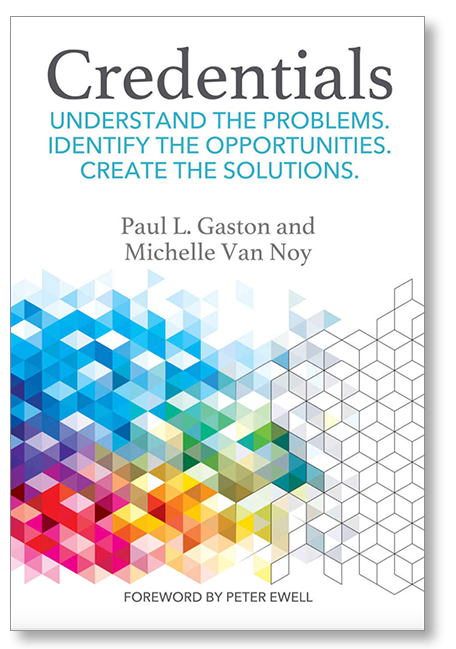The university remains open. For changes to schedules, including remote instruction and operations due to ongoing weather conditions, check the Rutgers–New Brunswick Operating Status page.

PISCATAWAY, N.J. (April 6, 2022) – Millions of Americans quit their job during “The Great Resignation,” but those seeking to learn new skills and change careers face a little-known risk.

New research from Kent State University’s Paul Gaston and Rutgers University’s Michelle Van Noy reveals dizzying growth in the number of job training credentials such as apprenticeships, badges, certificates, and certifications, with no uniform quality standards to ensure consumers are getting what they pay for and employers are hiring applicants with the skills they need.
At the same time, traditional degree programs are undergoing a period of rapid growth and diversification, leaving consumers with an impossible number of choices, including many with uncertain returns.
“The proliferation of credentials creates unprecedented opportunity for individuals, along with unprecedented confusion and risk,” said Gaston, Emeritus Trustees Professor at Kent State University. “In the short term, we find little reason to be optimistic. Many organizations are developing or offering suggestions for how to measure quality, but there is no agreement on standards for most of these credentials.”

Gaston and Van Noy spent three years analyzing pre-pandemic and COVID-era trends. Their research, summarized in the new book, Credentials, finds unprecedented growth in the number of job training and degree programs. There are now more than 1 million credentials in the U.S.
While some are well-known, ranging from traditional degrees and industry certifications to registered apprenticeships, others are newly-emerging and their meaning to employers is less clear. The badges offered by coding boot camps are one example.
“Coding is a highly volatile field— today’s in-demand expertise can become obsolete tomorrow,” said Van Noy, Director of the Education and Employment Research Center at Rutgers University. “The lack of recognition and understanding among employers adds to the problem. What does a boot camp badge actually mean? What skills does it represent? That may not be clear to a hiring manager who’s never heard of it before.”
Gaston and Van Noy also identified a startling debt-to-earnings ratio with some credentials. At one prominent university, film students typically graduate with $180,000 in debt in order to qualify for an entry-level position that pays $30,000 annually.
The news is not all alarming. The growing number of credentials and providers should enable most consumers to find a program ideally suited to their needs. But with so many choices, Gaston and Van Noy contend it’s increasingly challenging to find the best match.
The researchers argue that those most directly responsible—accreditors, government agencies, and higher education leaders—should come together to adopt uniform standards to ensure that all credentials hold value for students, employers, and society.
“We are in the midst of an evolving landscape,” Van Noy said. “With more providers and more credentials, there is a need for new standards and a greater awareness of how credentials come to take on value. We need to ensure they are designed in a quality way and lead to outcomes of value.”
Credential quality is an urgent concern for higher education leaders and policymakers.
In January, Navient agreed to a $1.85 billion deal to settle predatory lending claims with 39 states and the District of Columbia. Most of the lawsuits involved for-profit institutions, such as the now-defunct ITT Technical Institute, whose students often graduated with massive debt and a useless degree.
On Capitol Hill, Congress is considering legislation that would extend federal Pell grants to students in short-term, non-degree credit programs. The latest version of the bill would exclude online learning, which could negatively affect adult learners.
Press Contact
Steve Flamisch
Rutgers School of Management and Labor Relations
848.252.9011 (cell)
steve.flamisch@smlr.rutgers.edu
About the Book
Credentials (Stylus Publishing, 2022) provides practical solutions to make sense of a chaotic environment. The book offers a critical analysis of the credential landscape; a review of specific challenges across a wide range of credentials (associate, bachelor’s, master’s, doctoral, apprenticeships, certificates, certifications, and licenses); and a call to action for leaders.
About the School
The Rutgers School of Management and Labor Relations (SMLR) is the world’s leading source of expertise on managing and representing workers, designing effective organizations, and building strong employment relationships.
SMLR’s Education and Employment Research Center (EERC) strives to improve education and training to ensure students and workers are prepared to be successful in today's workforce.
###


